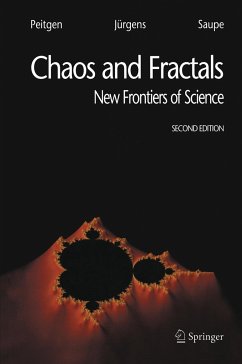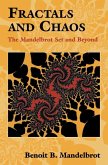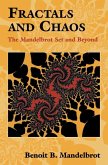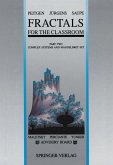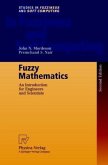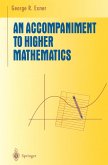Almost 12 years have passed by since we wrote Chaos and Fractals. At the time we were hoping that our approach of writing a book which would be both accessible without mathematical sophistication and portray these exiting new fields in an authentic manner would find an audience. Now we know it did. We know from many reviews and personal letters that the book is used in a wide range of ways: researchers use it to acquaint themselves, teachers use it in college and university courses, students use it for background reading, and there is also a substantial audience of lay people who just want to know what chaos and fractals are about. Every book that is somewhat technical in nature is likely to have a number of misprints and errors in its first edition. Some of these were caught and brought to our attention by our readers. One of them, Hermann Flaschka, deserves to be thanked in particular for his suggestions and improvements. This second edition has several changes. We have taken out thetwo appendices from the firstedition. At the time of the first edition Yuval Fishers contribution, which we published as an appendix was probably the first complete expository account on fractal image compression. Meanwhile, Yuvals book Fractal Image Compression: Theory and Application appeared and is now the publication to refer to.
From the reviews:
"Numerous books have appeared in recent years that either explore the beauty of fractal art, describe techniques for its creation, or investigate some aspect of the related field of chaotic behavior. The present work attempts to accomplish all three goals in one huge volume...the authors should be applauded for their ambitions undertaking." -- Mathematical Reviews
"This book ... contains all one ever wanted to know about fractals, and more. Written by-next to Mandelbrot-the greatest popularizer of the concept of fractal geometry ... It contains a wealth of information on nearly every angle of the topic... I enjoyed reading the book for its lucid approach, its attempt at completeness, and especially, for the large number of illustrative figures and pictures." -- Zentralblatt Mathematik
From the reviews of the second edition:
"This is the second ... edition of what has been a bestseller since its first publication in 1992. ... All the laudatory comments heard twelve years ago about this fascinating book remain entirely valid. No one has succeeded in better presenting ... . the presentation has not aged at all - the comprehensiveness of the underlying mathematics and the illustrative power of the figures has never been surpassed. Twelve years after its first edition this book remains a must buy." -- André Hautot, Physicalia, Vol. 57 (3), 2005
"The book is written for everyone who wants to learn details of chaos theory and fractal geometry, also for readers who have not much knowledge of technical mathematics. In the fourteen chapters the central ideas and concepts of chaos and fractals are developed ... ." -- F. Haslinger, Monatshefte für Mathematik, Vol. 144 (4), 2005
"It is one of the best introductions to chaos and fractals around. ... Unlike some other books on fractals, it can be read by non-specialists ... . The book is beautifully produced and well illustrated so it is a pleasure to read." -- Hugh Williams, The Mathematical Gazette, Vol. 90 (5l9), 2006
"The first edition of this vast introduction to chaos and fractals appeared in 1992. This new edition is virtually identical to the original except for some material ... . the book is ... a wonderful tour of a fascinating area of mathematics, and now the reader can take this tour while carrying around a slimmer (but still hefty) volume. ... The authors have a friendly conversational style ... . This is a great book ... ." -- Raymond N. Greenwell, MathDL, May, 2005
"Chaos and Fractals: New Frontiers of Science is an amazing introduction to the ideas of fractal geometry and chaotic dynamics ... . The authors have done a tremendous job in explaining quite difficult concepts in an elegant and simple way ... . I enjoyed this book tremendously - the authors have put in a tremendous amount of work in making a vast and interesting subject accessible ... . I wholeheartedly recommend this book to anyone with even a passing interest in the subject matter." -- Dr. S. Virmani, Contemporary Physics, Vol. 46 (6), 2005
"There appeared many books in the 1980's and early 1990's that ... required only a limited mathematical background to understand. They made the fractals, chaos and the Mandelbrot and Julia sets quite popular ... . The ... book that is under review here is one of these popular books. ... The book will remain what it has been so far: an outstanding book that contains all you ever wanted to know about fractals and chaos accessible to all levels of mathematically skilled." -- Bulletin of the Belgian Mathematical Society, Vol. 12 (3), 2005
"Numerous books have appeared in recent years that either explore the beauty of fractal art, describe techniques for its creation, or investigate some aspect of the related field of chaotic behavior. The present work attempts to accomplish all three goals in one huge volume...the authors should be applauded for their ambitions undertaking." -- Mathematical Reviews
"This book ... contains all one ever wanted to know about fractals, and more. Written by-next to Mandelbrot-the greatest popularizer of the concept of fractal geometry ... It contains a wealth of information on nearly every angle of the topic... I enjoyed reading the book for its lucid approach, its attempt at completeness, and especially, for the large number of illustrative figures and pictures." -- Zentralblatt Mathematik
From the reviews of the second edition:
"This is the second ... edition of what has been a bestseller since its first publication in 1992. ... All the laudatory comments heard twelve years ago about this fascinating book remain entirely valid. No one has succeeded in better presenting ... . the presentation has not aged at all - the comprehensiveness of the underlying mathematics and the illustrative power of the figures has never been surpassed. Twelve years after its first edition this book remains a must buy." -- André Hautot, Physicalia, Vol. 57 (3), 2005
"The book is written for everyone who wants to learn details of chaos theory and fractal geometry, also for readers who have not much knowledge of technical mathematics. In the fourteen chapters the central ideas and concepts of chaos and fractals are developed ... ." -- F. Haslinger, Monatshefte für Mathematik, Vol. 144 (4), 2005
"It is one of the best introductions to chaos and fractals around. ... Unlike some other books on fractals, it can be read by non-specialists ... . The book is beautifully produced and well illustrated so it is a pleasure to read." -- Hugh Williams, The Mathematical Gazette, Vol. 90 (5l9), 2006
"The first edition of this vast introduction to chaos and fractals appeared in 1992. This new edition is virtually identical to the original except for some material ... . the book is ... a wonderful tour of a fascinating area of mathematics, and now the reader can take this tour while carrying around a slimmer (but still hefty) volume. ... The authors have a friendly conversational style ... . This is a great book ... ." -- Raymond N. Greenwell, MathDL, May, 2005
"Chaos and Fractals: New Frontiers of Science is an amazing introduction to the ideas of fractal geometry and chaotic dynamics ... . The authors have done a tremendous job in explaining quite difficult concepts in an elegant and simple way ... . I enjoyed this book tremendously - the authors have put in a tremendous amount of work in making a vast and interesting subject accessible ... . I wholeheartedly recommend this book to anyone with even a passing interest in the subject matter." -- Dr. S. Virmani, Contemporary Physics, Vol. 46 (6), 2005
"There appeared many books in the 1980's and early 1990's that ... required only a limited mathematical background to understand. They made the fractals, chaos and the Mandelbrot and Julia sets quite popular ... . The ... book that is under review here is one of these popular books. ... The book will remain what it has been so far: an outstanding book that contains all you ever wanted to know about fractals and chaos accessible to all levels of mathematically skilled." -- Bulletin of the Belgian Mathematical Society, Vol. 12 (3), 2005
"It is relatively discursive and easy to read, with each chapter telling a coherent story, and it highlights the key concepts and ideas, examining a few models in detail and using worked numerical examples as well as visualisations and illustrations ... . makes an excellent entry to the broader mathematics of fractals and chaos, especially for students who are curious about the details as well as the core concepts but don't want to get bogged down in formal mathematics." (Danny Yee, Danny Yee's Book reviews, February, 2016)
"It is one of the best introductions to chaos and fractals around. ... Unlike some other books on fractals, it can be read by non-specialists ... . The book is beautifully produced and well illustrated so it is a pleasure to read." (Hugh Williams, The Mathematical Gazette, Vol. 90 (5l9), 2006)
"The first edition of this vast introduction to chaos and fractals appeared in 1992. This new edition is virtually identical to the original except for some material... . the book is ... a wonderful tour of a fascinating area of mathematics, and now the reader can take this tour while carrying around a slimmer (but still hefty) volume. ... The authors have a friendly conversational style ... . This is a great book ... ." (Raymond N. Greenwell, MathDL, May, 2005)
"Chaos and Fractals: New Frontiers of Science is an amazing introduction to the ideas of fractal geometry and chaotic dynamics ... . The authors have done a tremendous job in explaining quite difficult concepts in an elegant and simple way ... . I enjoyed this book tremendously - the authors have put in a tremendous amount of work in making a vast and interesting subject accessible ... . I wholeheartedly recommend this book to anyone with even a passing interest in the subject matter." (Dr. S. Virmani, Contemporary Physics, Vol. 46 (6), 2005)
"There appeared many books in the 1980's and early 1990's that ... required only a limited mathematical background to understand. They made the fractals,chaos and the Mandelbrot and Julia sets quite popular ... . The ... book that is under review here is one of these popular books. ... The book will remain what it has been so far: an outstanding book that contains all you ever wanted to know about fractals and chaos accessible to all levels of mathematically skilled." (Bulletin of the Belgian Mathematical Society, Vol. 12 (3), 2005)
"The book is written for everyone who wants to learn details of chaos theory and fractal geometry, also for readers who have not much knowledge of technical mathematics. In the fourteen chapters the central ideas and concepts of chaos and fractals are developed ... ." (F. Haslinger, Monatshefte für Mathematik, Vol. 144 (4), 2005)
"This is the second ... edition of what has been a bestseller since its first publication in 1992. ... All the laudatory comments heard twelve years ago about this fascinating book remain entirely valid. No one has succeeded in better presenting ... . the presentation has not aged atall - the comprehensiveness of the underlying mathematics and the illustrative power of the figures has never been surpassed. Twelve years after its first edition this book remains a must buy." (André Hautot, Physicalia, Vol. 57 (3), 2005)
"Numerous books have appeared in recent years that either explore the beauty of fractal art, describe techniques for its creation, or investigate some aspect of the related field of chaotic behavior. The present work attempts to accomplish all three goals in one huge volume...the authors should be applauded for their ambitions undertaking." Mathematical Reviews
"This book ... contains all one ever wanted to know about fractals, and more. Written by-next to Mandelbrot-the greatest popularizer of the concept of fractal geometry ... It contains a wealth of information on nearly every angle of the topic... I enjoyed reading the book for its lucid approach, its attempt at completeness, and especially, for the large number of illustrative figures and pictures." Zentralblatt Mathematik
"It is one of the best introductions to chaos and fractals around. ... Unlike some other books on fractals, it can be read by non-specialists ... . The book is beautifully produced and well illustrated so it is a pleasure to read." (Hugh Williams, The Mathematical Gazette, Vol. 90 (5l9), 2006)
"The first edition of this vast introduction to chaos and fractals appeared in 1992. This new edition is virtually identical to the original except for some material... . the book is ... a wonderful tour of a fascinating area of mathematics, and now the reader can take this tour while carrying around a slimmer (but still hefty) volume. ... The authors have a friendly conversational style ... . This is a great book ... ." (Raymond N. Greenwell, MathDL, May, 2005)
"Chaos and Fractals: New Frontiers of Science is an amazing introduction to the ideas of fractal geometry and chaotic dynamics ... . The authors have done a tremendous job in explaining quite difficult concepts in an elegant and simple way ... . I enjoyed this book tremendously - the authors have put in a tremendous amount of work in making a vast and interesting subject accessible ... . I wholeheartedly recommend this book to anyone with even a passing interest in the subject matter." (Dr. S. Virmani, Contemporary Physics, Vol. 46 (6), 2005)
"There appeared many books in the 1980's and early 1990's that ... required only a limited mathematical background to understand. They made the fractals,chaos and the Mandelbrot and Julia sets quite popular ... . The ... book that is under review here is one of these popular books. ... The book will remain what it has been so far: an outstanding book that contains all you ever wanted to know about fractals and chaos accessible to all levels of mathematically skilled." (Bulletin of the Belgian Mathematical Society, Vol. 12 (3), 2005)
"The book is written for everyone who wants to learn details of chaos theory and fractal geometry, also for readers who have not much knowledge of technical mathematics. In the fourteen chapters the central ideas and concepts of chaos and fractals are developed ... ." (F. Haslinger, Monatshefte für Mathematik, Vol. 144 (4), 2005)
"This is the second ... edition of what has been a bestseller since its first publication in 1992. ... All the laudatory comments heard twelve years ago about this fascinating book remain entirely valid. No one has succeeded in better presenting ... . the presentation has not aged atall - the comprehensiveness of the underlying mathematics and the illustrative power of the figures has never been surpassed. Twelve years after its first edition this book remains a must buy." (André Hautot, Physicalia, Vol. 57 (3), 2005)
"Numerous books have appeared in recent years that either explore the beauty of fractal art, describe techniques for its creation, or investigate some aspect of the related field of chaotic behavior. The present work attempts to accomplish all three goals in one huge volume...the authors should be applauded for their ambitions undertaking." Mathematical Reviews
"This book ... contains all one ever wanted to know about fractals, and more. Written by-next to Mandelbrot-the greatest popularizer of the concept of fractal geometry ... It contains a wealth of information on nearly every angle of the topic... I enjoyed reading the book for its lucid approach, its attempt at completeness, and especially, for the large number of illustrative figures and pictures." Zentralblatt Mathematik

